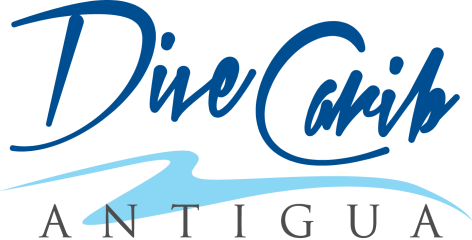-

Scuba diving, snorkelling and other forms of marine tourism are fantastic activities to introduce people to the marine environment and create new ocean advocates. However, unmanaged, these activities can have acute negative impacts for fragile ecosystems like coral reefs.
GreenFins is a proven conservation management approach – implemented internationally by The Reef-World Foundation and the UN Environment Programme – which leads to a measurable reduction in the negative environmental impacts associated with marine tourism. It aims to protect coral reefs through environmentally friendly guidelines promoting sustainable diving and snorkelling. It provides the only internationally recognised environmental standards for marine tourism and its robust assessment system measures compliance.
How can you use Green Fins?
-
 On site accommodation is offered at The Lodge, which is run by The National Sailing Academy.
On site accommodation is offered at The Lodge, which is run by The National Sailing Academy.Read about accommodation options, and discounts available, on our Diving Holiday Accommodations page.
-
If your travel insurance does not cover you for scuba diving, we recommend that you take out scuba diving accident cover.
This is not particularly costly, e.g. annual ‘Worldwide Preferred’ dive cover with DAN (Divers Alert Network) through DAN World costs $125US (individual cover) for Antiguan residents.
-
 We are very lucky in Antigua, as we have good conditions for scuba diving all year round. However we do have 2 distinct seasons; the windy winter, and the still summer.
We are very lucky in Antigua, as we have good conditions for scuba diving all year round. However we do have 2 distinct seasons; the windy winter, and the still summer.On average, surface conditions (wave height) are better (lower) during the summer months (May – November), allowing us more frequent access to the windward dive sites. However, these months are more prone to algal blooms, making visibility more variable. FYI bad visibility for us is 30-40ft (9-12m); so still pretty good!
On average, surface conditions (wave height) are worse (higher) during the winter months (November – May), often limiting our dive site choice. However, the visibility during these months is almost always in excess of 18m/60ft, if not 30m/100ft. Spotted eagle rays (Aetobatus narinari) are far more social during the winter months, and tend to congregate at our shallow, sheltered dive sites (The Pillars of Hercules and Black’s Point), although we do spot them year-round.
English Harbour, and the island as a whole, is busier during the winter months, therefore more restaurants and bars are open, and more events are taking place. However, accommodation is normally more expensive.
-
Some swimming ability is required. You need to have basic swim skills and be able to comfortably maintain yourself in the water. For the PADI Open Water Diver course, your PADI Instructor will assess this by having you:
Swim 200 metres/yards (or 300 metres/yards in mask, fins and snorkel). There is no time limit for this, and you may use any swimming strokes you want.
Float and tread water for 10 minutes, again using any methods you want.
Please find more scuba diving related FAQs at PADI FAQs
-
The most likely negative interaction you could have with marine life while scuba diving in Antigua would be brushing up against some fire coral (Millepora). This normally results in a weak sting, leaving an itchy area on your skin, which does not usually last long. To avoid this, and to protect the coral, we practice good buoyancy, and stay streamlined, keeping our arms close to our body.
Other than this, as long as you don’t tease or harass marine life, nothing will actively try to harm you. We have never had a dangerous incident with any kind of marine life.
-
Normal beach attire e.g. swimwear, sunglasses, sunscreen lotion (reef safe! = non-nano zinc oxide!), a hat, and a towel. Although water and juice are included and offered on board, feel free to bring any snacks that you may want to eat between dives. If you tend to suffer from motion sickness it may be an idea to take motion sickness pills prior to meeting at the dive shop.
-
The average journey time is only 15mins, and the maximum journey time is 30mins.
-
No. But there are plenty of restaurants within walking distance.
-
Unfortunately no, the distance between resorts is just too large. The easiest way to travel to us is by taxi, but over the course of a few days, the most economical way would be to rent a car.
-
Taxi
If you’d like to take a taxi to reach us here at DiveCarib, or for any other adventures around Antigua, we’d recommend Del Taxi. Please inform them that you were recommended by DiveCarib.
Phone: +1(268) 725-7484
Car Rental
If you’d like to rent a car during your stay so that you can reach DiveCarib, and explore the rest of the island, we’d recommend using Titi Rent a Car. Titi Rent a Car is located within English Harbour town, and is only a 10mins walk from DiveCarib. Please inform them that you were recommended by DiveCarib.
Phone: +1(268) 460-1452
-
Yes, it actually is a good idea to eat light before a dive. However it is not recommended to have a full heavy meal before a dive.
-
No, alcohol consumption is not recommended before scuba diving, and anyone who has consumed alcohol (or taken a narcotic of any kind) will not be allowed to board the boat. It is also recommended that you avoid drinking heavily the evening before diving.
-
Here is some advice from PADI:
After completing a single no-decompression dive, a minimum preflight surface interval of 12 hours is suggested.
For multiple dives per day, or multiple days of diving, a minimum preflight surface interval of 18 hours is suggested.
To err on the side of safety, many divers plan a 24-hour surface interval and spend their time exploring topside attractions.
-
Here is some advice from PADI:
- Deep Tissue Massage – What? No massage? Relax and breathe. Here’s the good news, according to DAN, “massage has not been confidently associated with…cases of DCS.”
Experts caution against deep tissue massage, but a gentle relaxation massage is probably fine. The two main concerns with deep tissue massage are:
– Increased blood flow might lead to bubble formation
– Muscle soreness that might cause soreness which can lead to misdiagnosis (or delayed diagnosis) of DCS.- Relaxing in a hot tub – As the body warms up and circulation improves, there is an increased chance of bubble formation. According to DAN:
Since the solubility of gas is inversely related to temperature, tissues will hold less in solution as they warm. Warming tissue with significant loads can promote bubble formation. Since the warming of the superficial tissues precedes the increase in blood flow, such bubbles can become problematic before the circulation can remove them harmlessly.
- Intense Partying – Drinking a lot of alcohol can cause dehydration and delayed diagnosis of DCS. If you want to unwind with a few adult beverages, first drink lots of water, then enjoy in moderation.
-
The Sailing Academy, where we are located, is a five-minute walk from the centre of town, where you will find a number of restaurants and bars offering various cuisines. It is only a ten-minute walk to the UNESCO world heritage site locally referred to as Nelson’s Dockyard. The stunning beaches Pigeon Beach, and Galleon Beach, as well as the look out – Shirley Heights, which hosts a famous Sunday/Thursday night bbq and party, are also located nearby.
Save on multiple days of diving when booking an AM Boat Dive! Add a 3, 4, 5, or 10 day package


